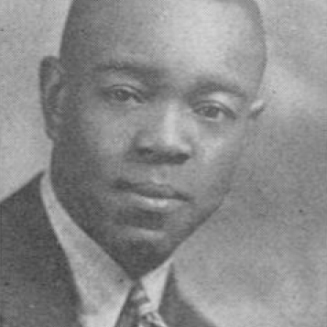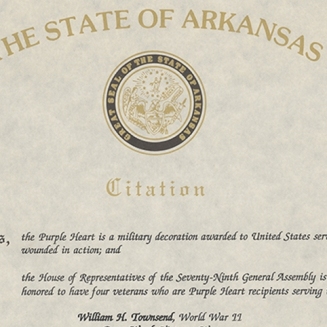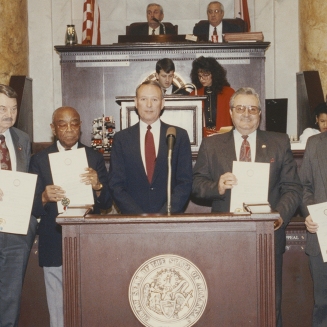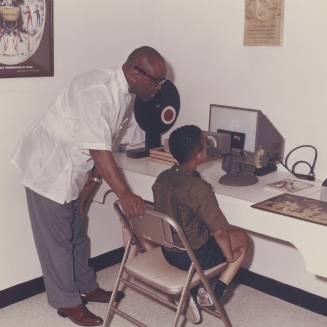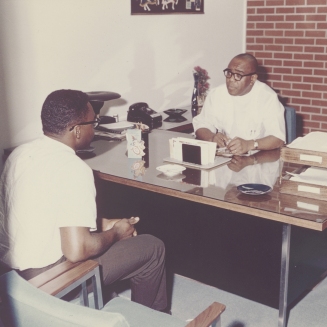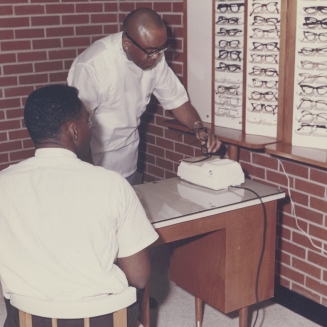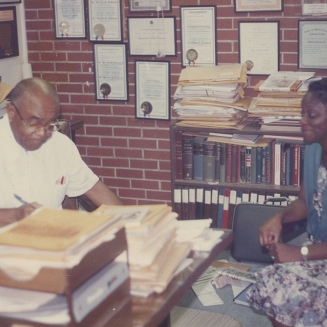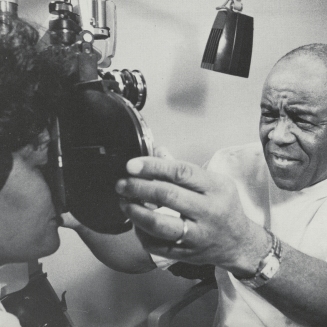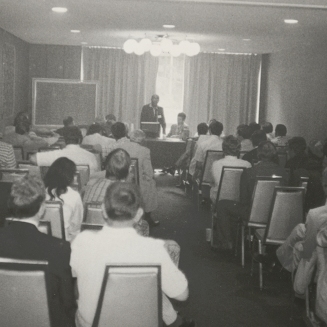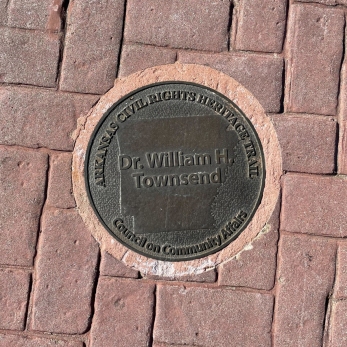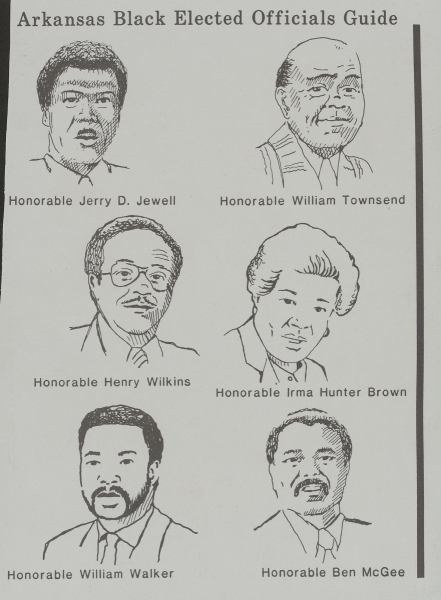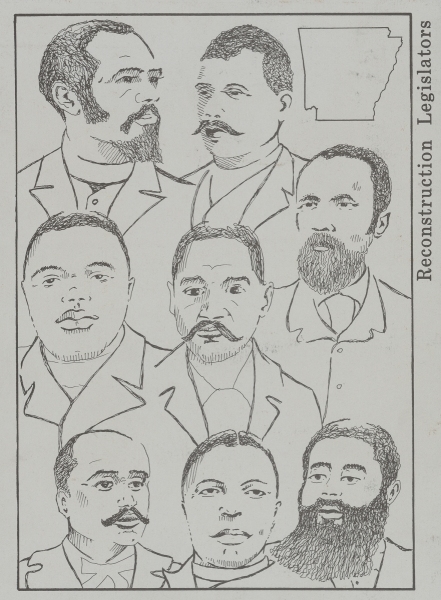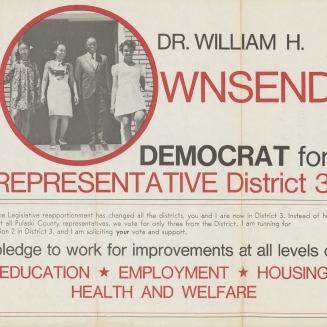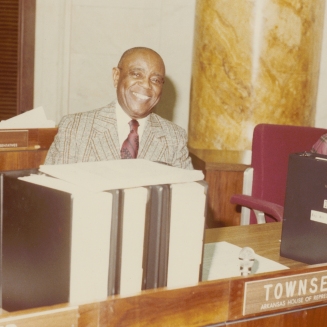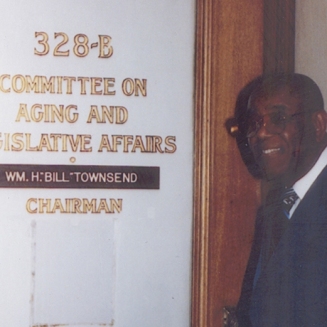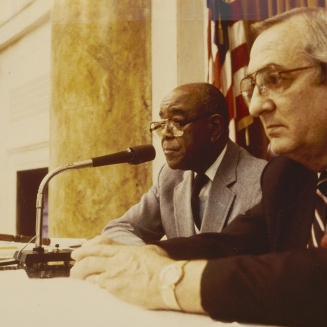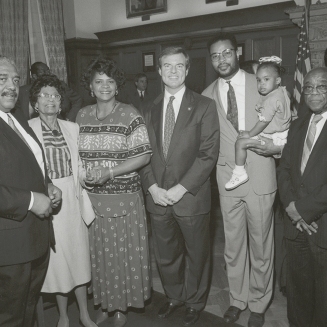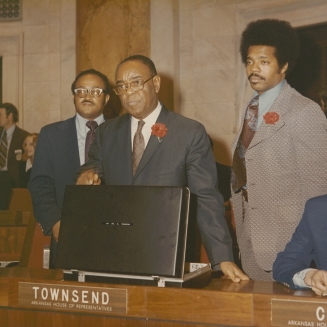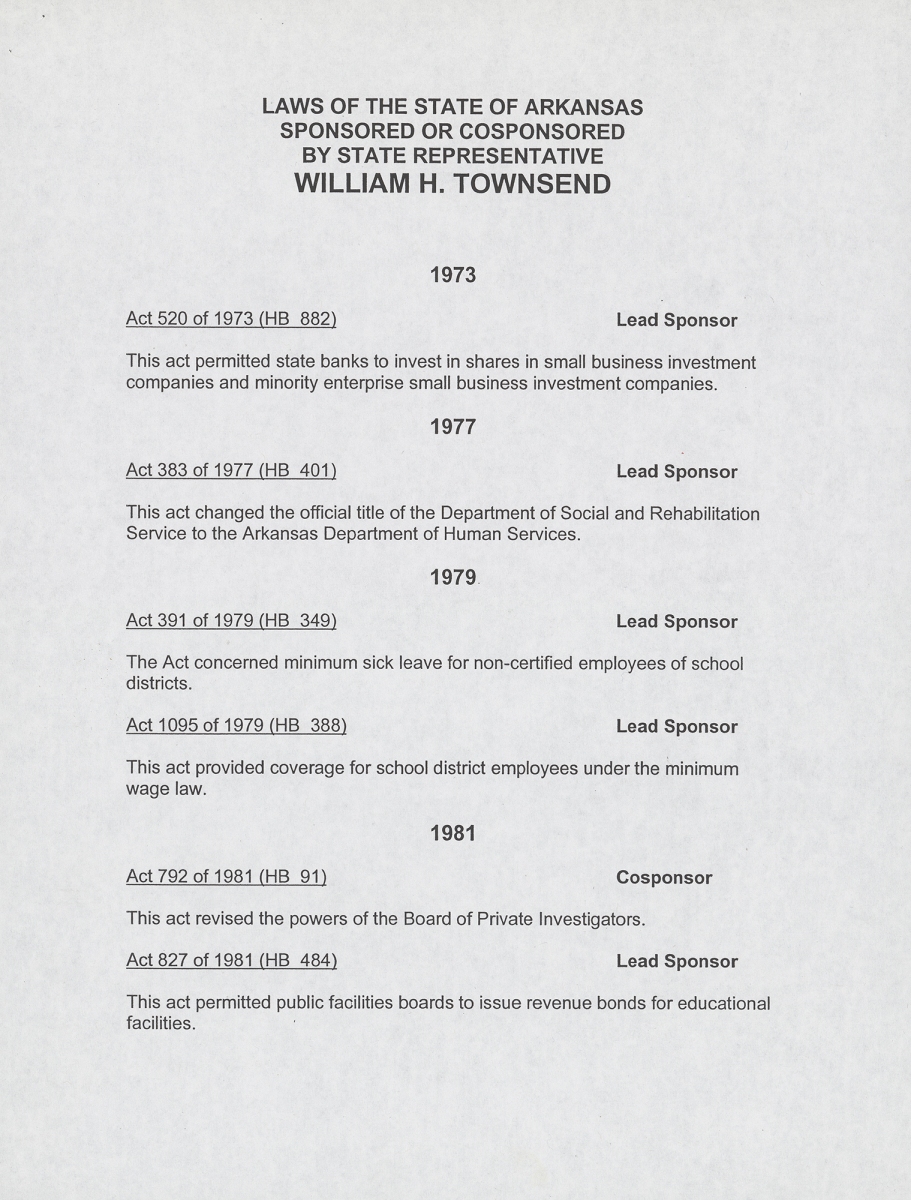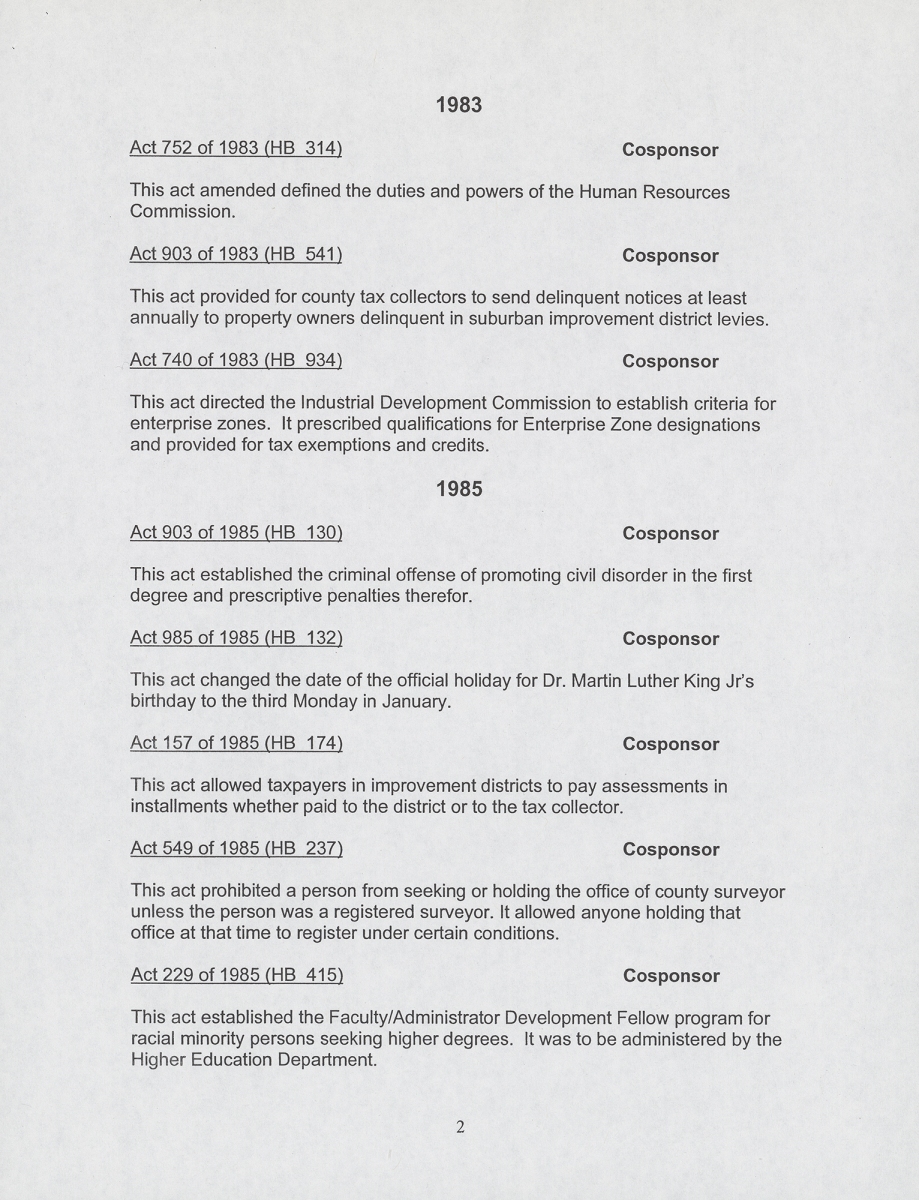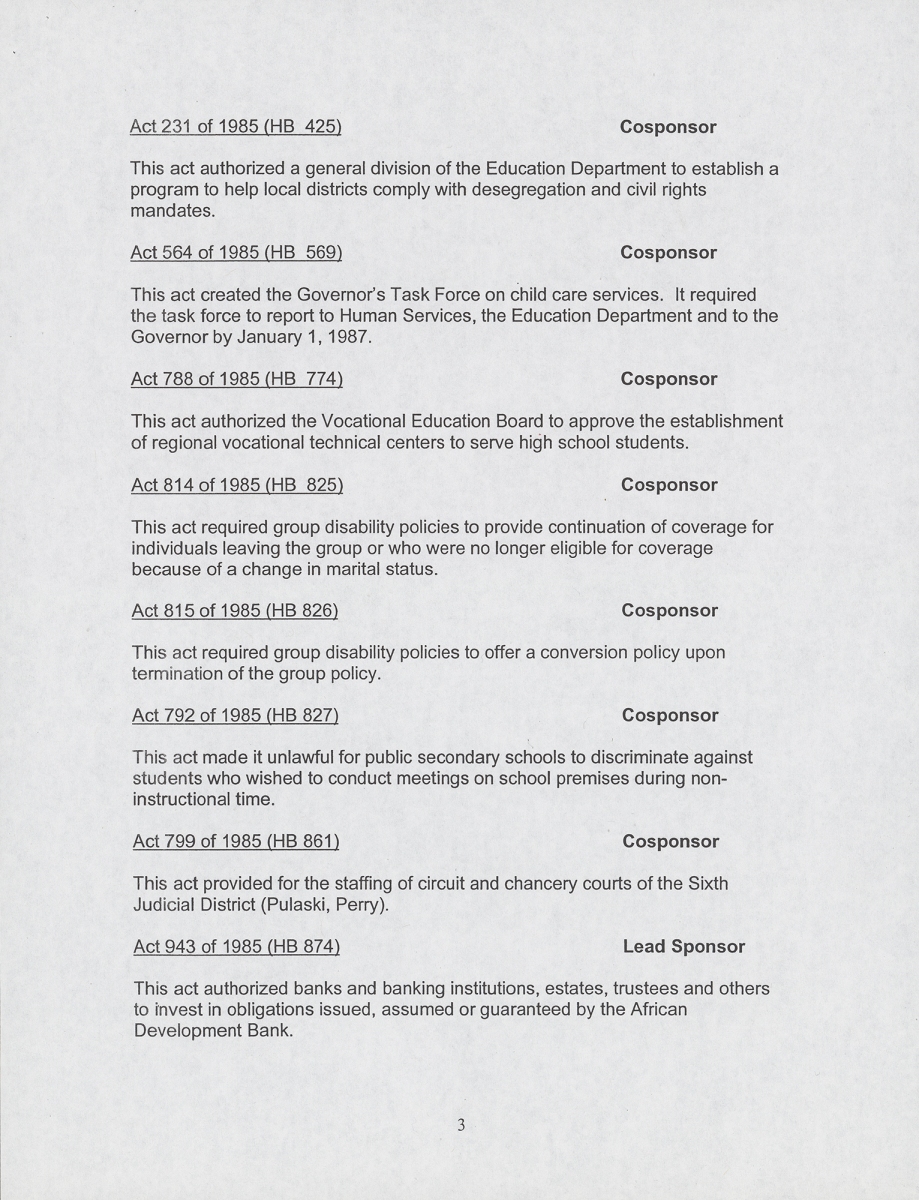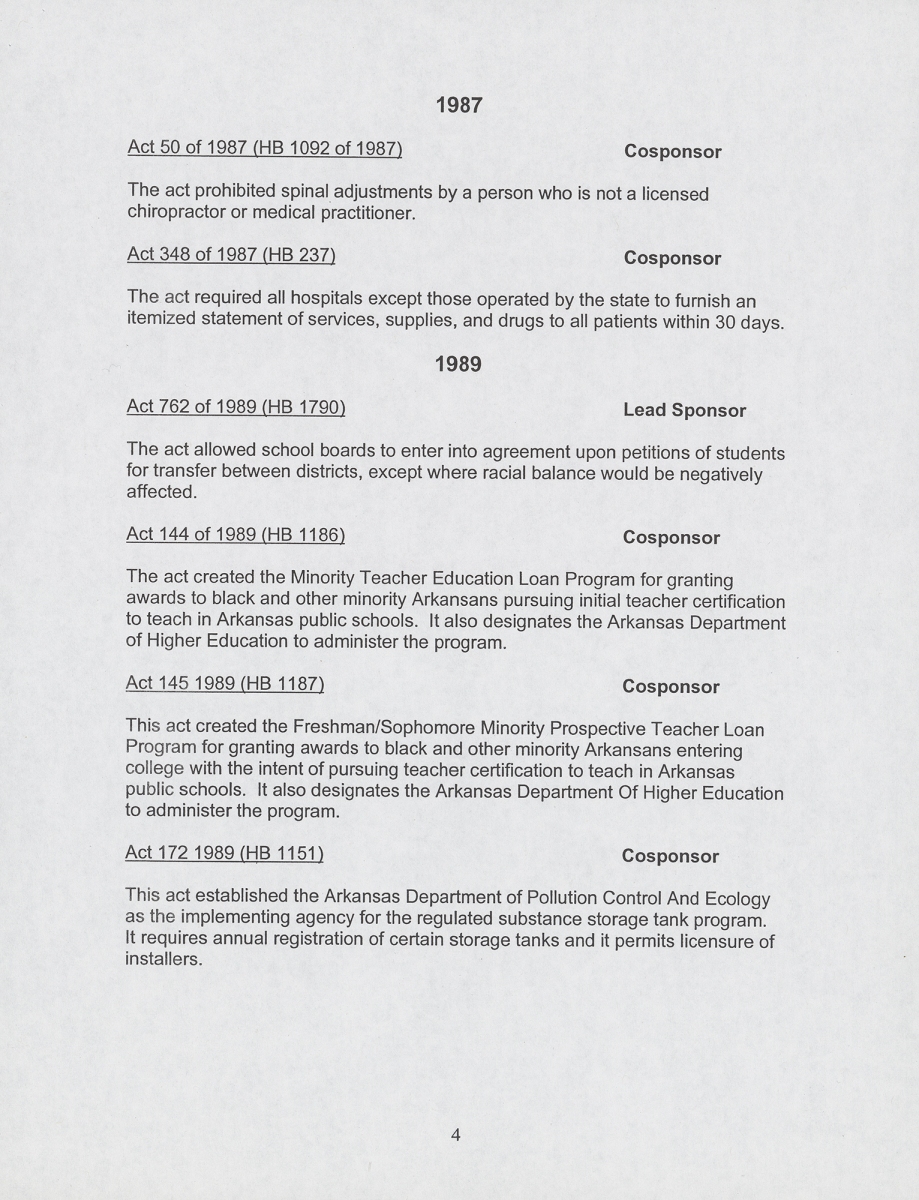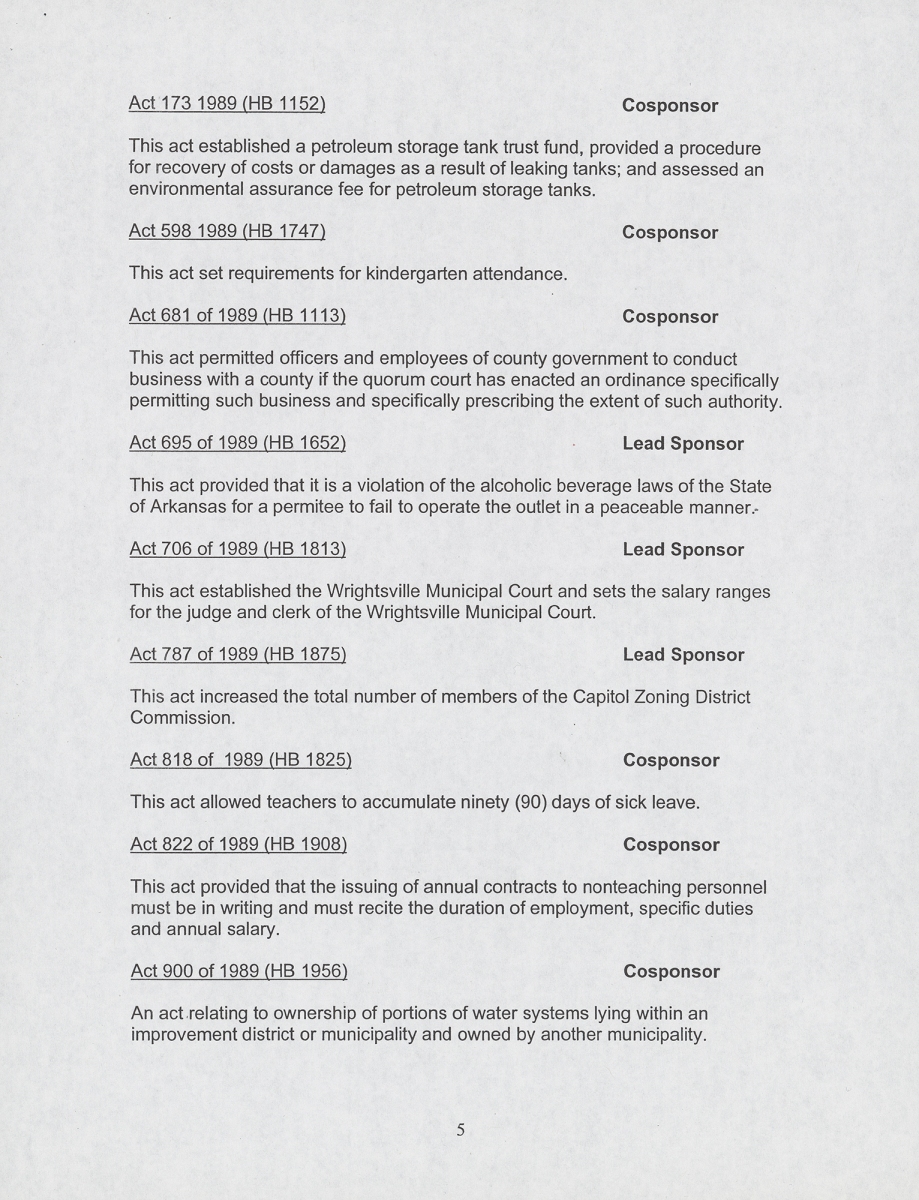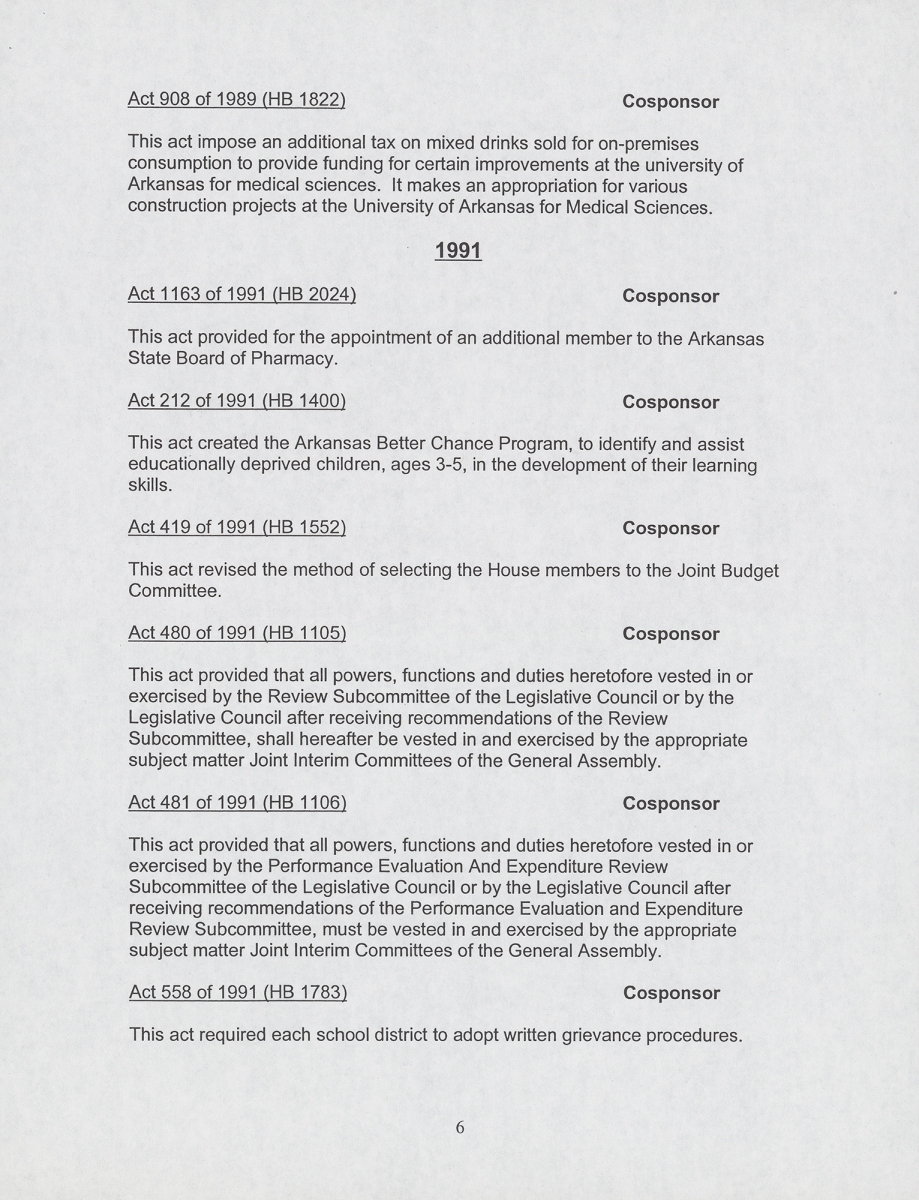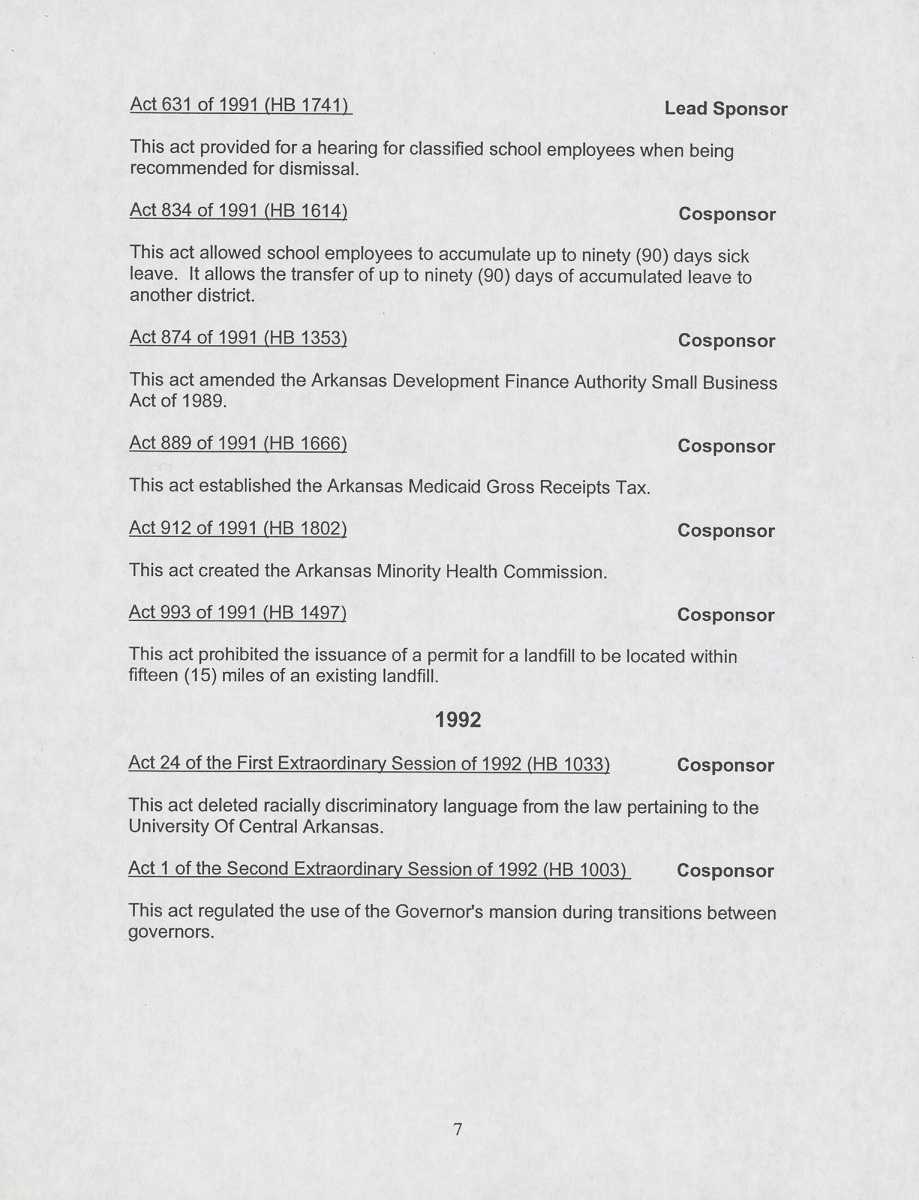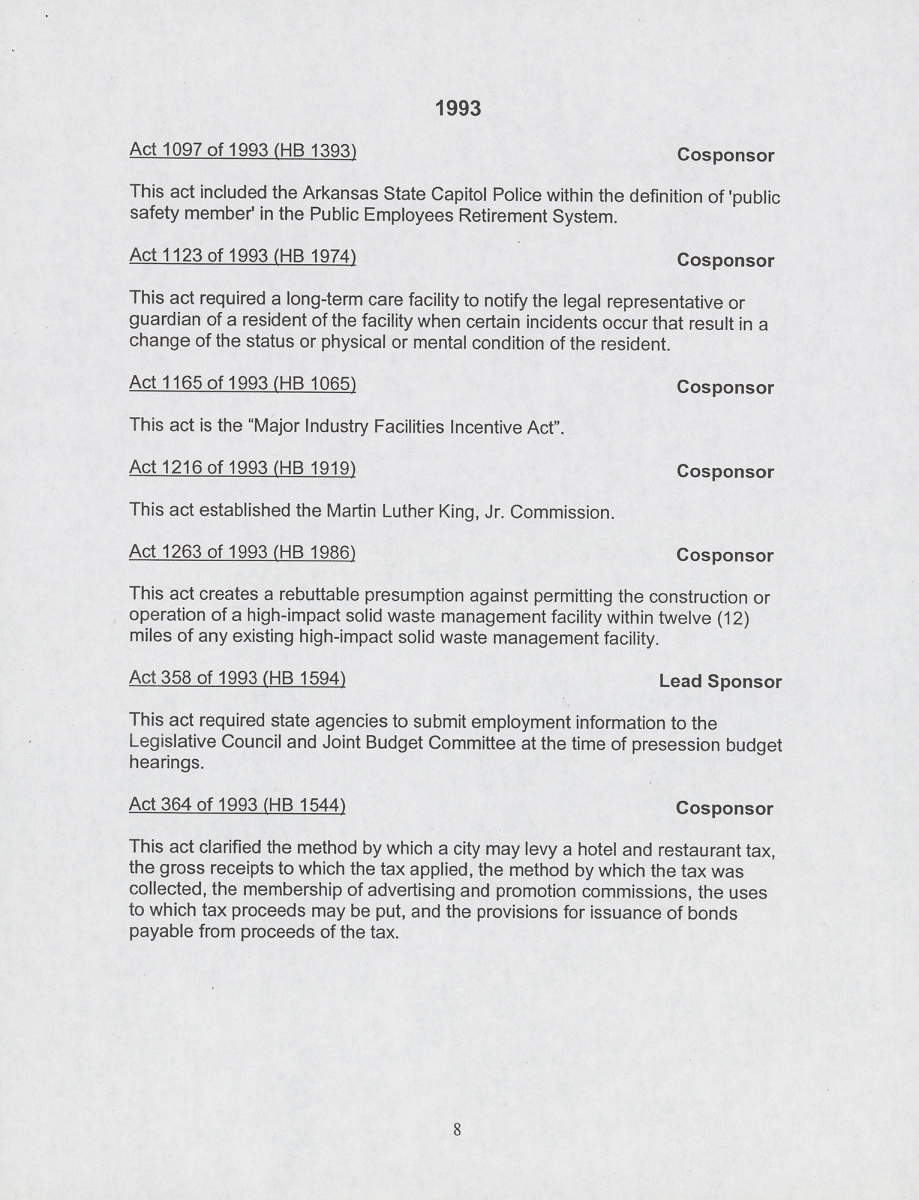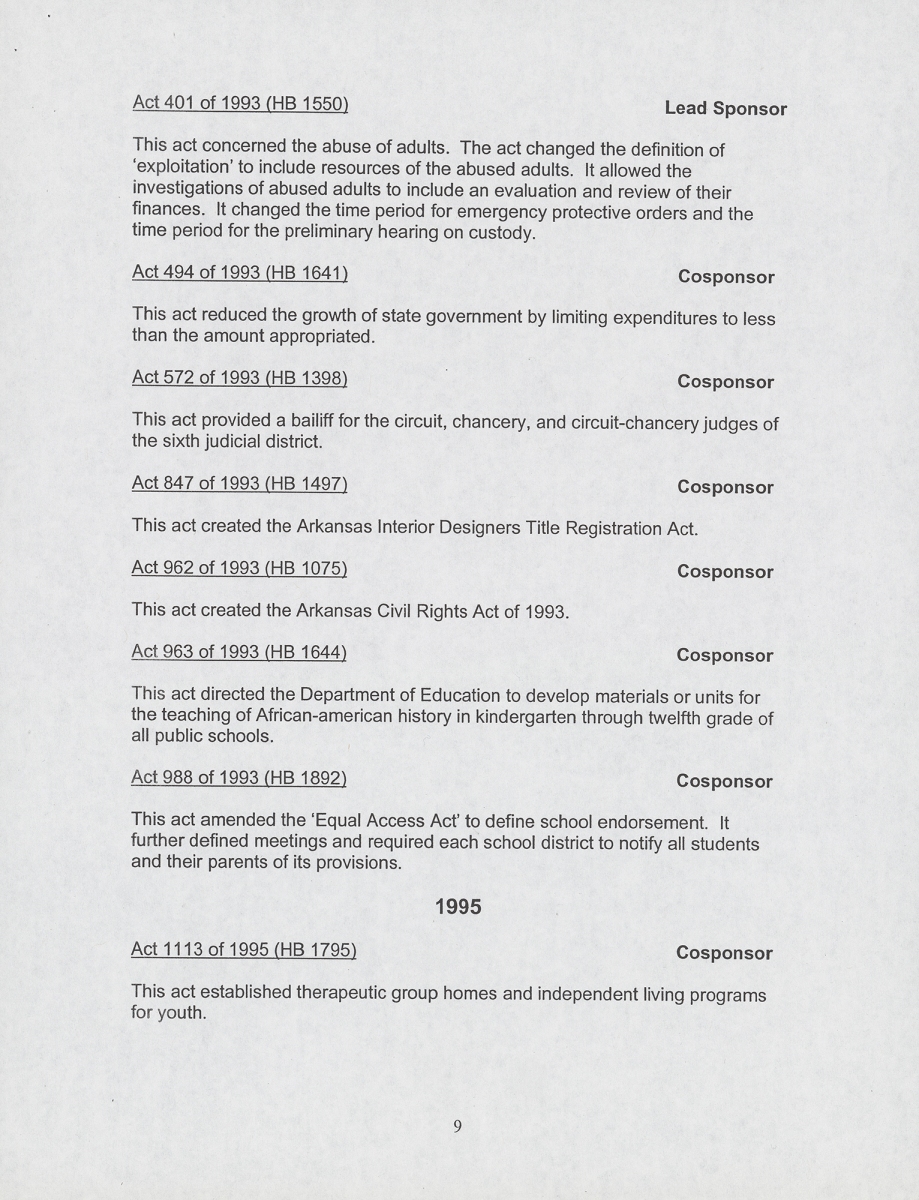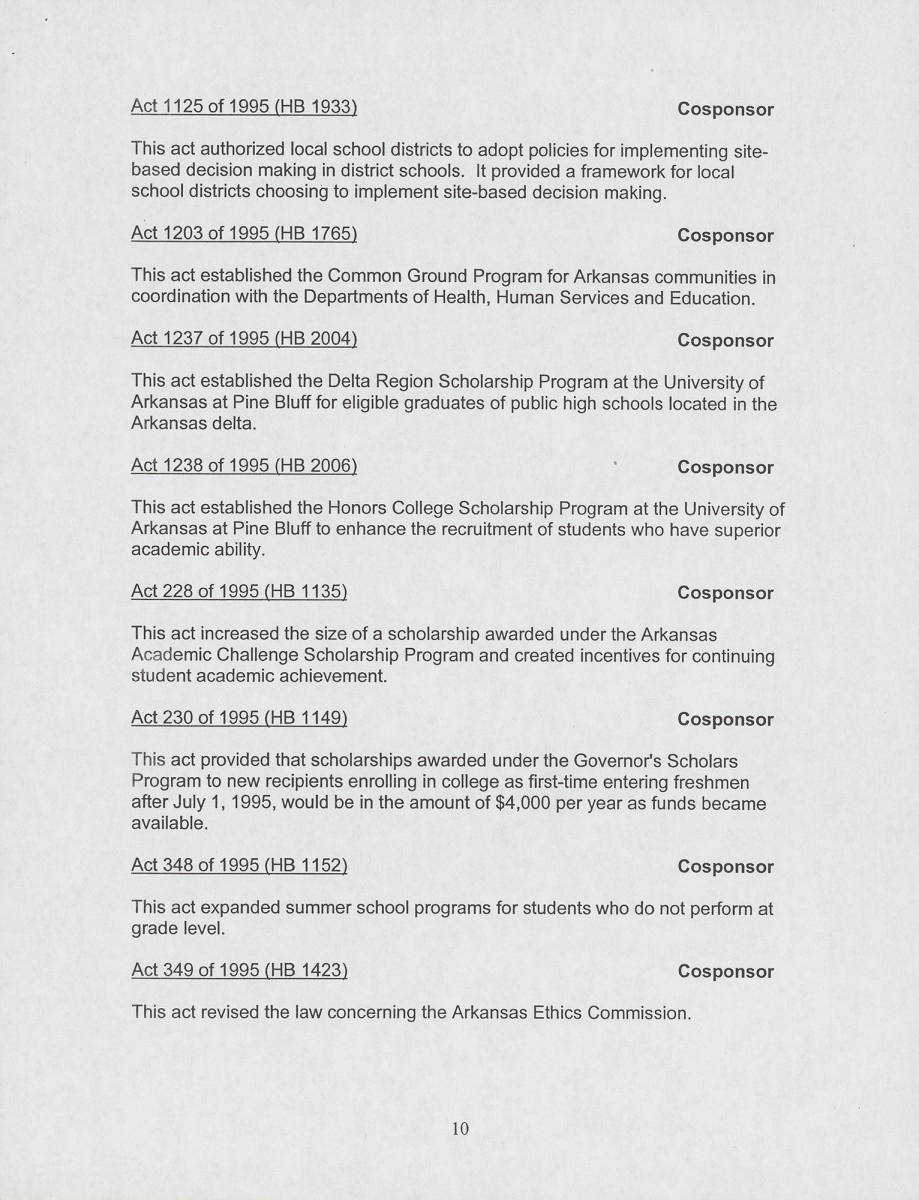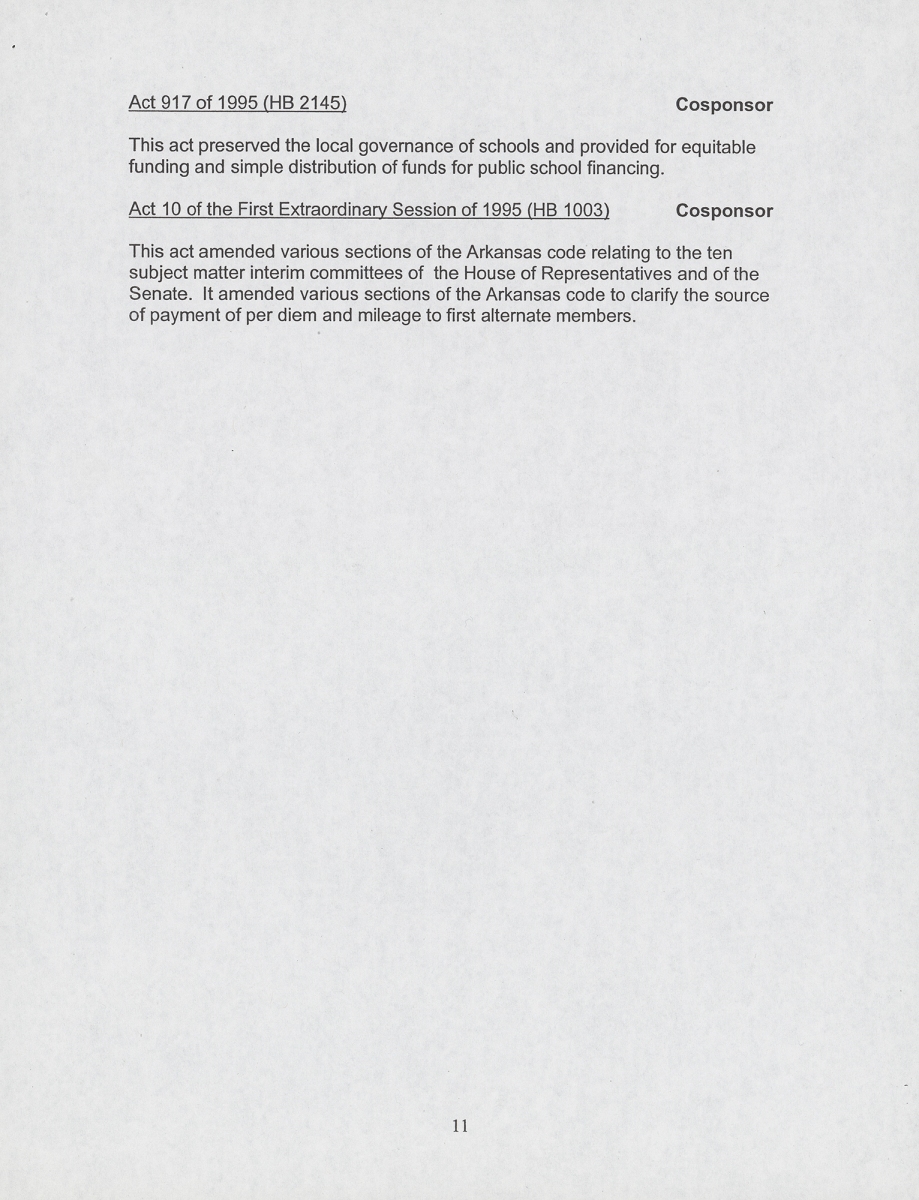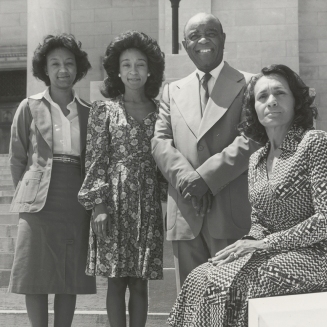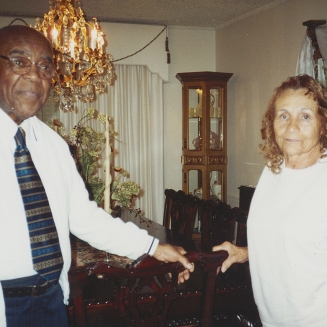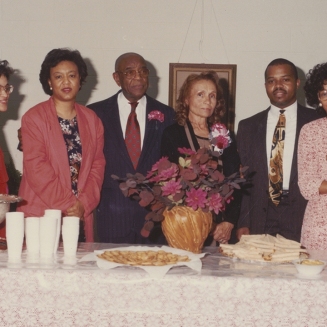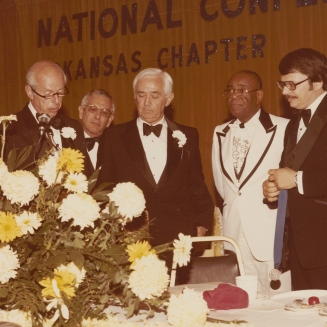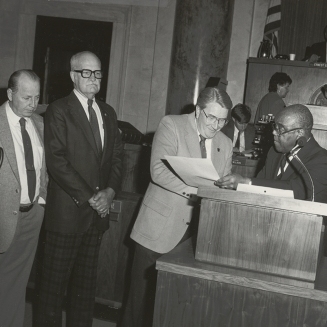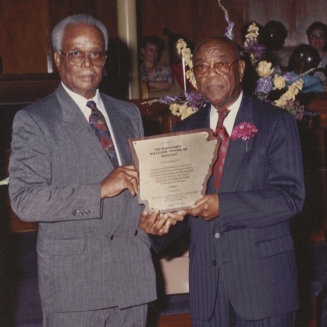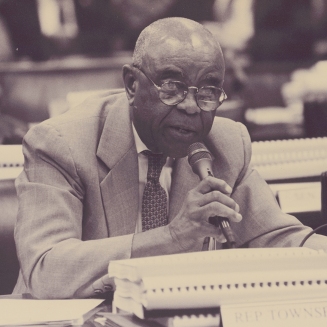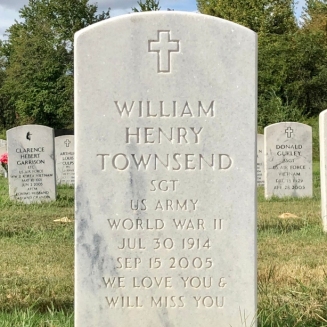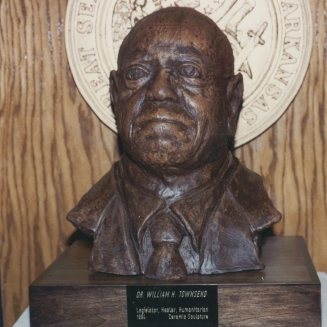DR. WILLIAM TOWNSEND
Optometrist ‧ Civil Rights Leader ‧ State Representative
Dr. William Henry Townsend was a recognized and respected leader of the Black community, medical profession, and political circles in late twentieth-century Arkansas. He set many “firsts” in the state such as being the first licensed Black optometrist, one of the first Black state legislators in the Arkansas General Assembly since the 1890s, and the first Black chair of the Aging and Legislative Affairs Committee. Through his roles as an optometrist, civil rights leader, and state representative, Dr. Townsend worked to build a better Little Rock and a better Arkansas.
Early Life and Education
William “Bill” Townsend was born on a farm near West Point, Mississippi, to Mr. and Mrs. John Henry Townsend on July 30, 1914. He was the oldest of eleven children. When he was four years old, his family moved to Earle, Arkansas, where he received his early education and graduated from eighth grade. After a year of school in Memphis, he attended the Tuskegee Institute in Alabama. While at the Tuskegee Institute, he was a member of the Agricultural Forum and a platoon leader in the Army Lieutenant Cadet Corps. In May 1941, Townsend earned a high school diploma and graduated from the Tuskegee Institute with a Bachelor of Science degree in Agriculture.
He enlisted in the U.S. Army in early 1942 and served for forty-five months during World War II, of which he spent thirty-four months overseas in North Africa, Italy, France, Germany, and England. While in England, he studied for nine months at Nottingham University. During the course of his service, Townsend earned the rank of sergeant and received a Purple Heart.
TIMELINE
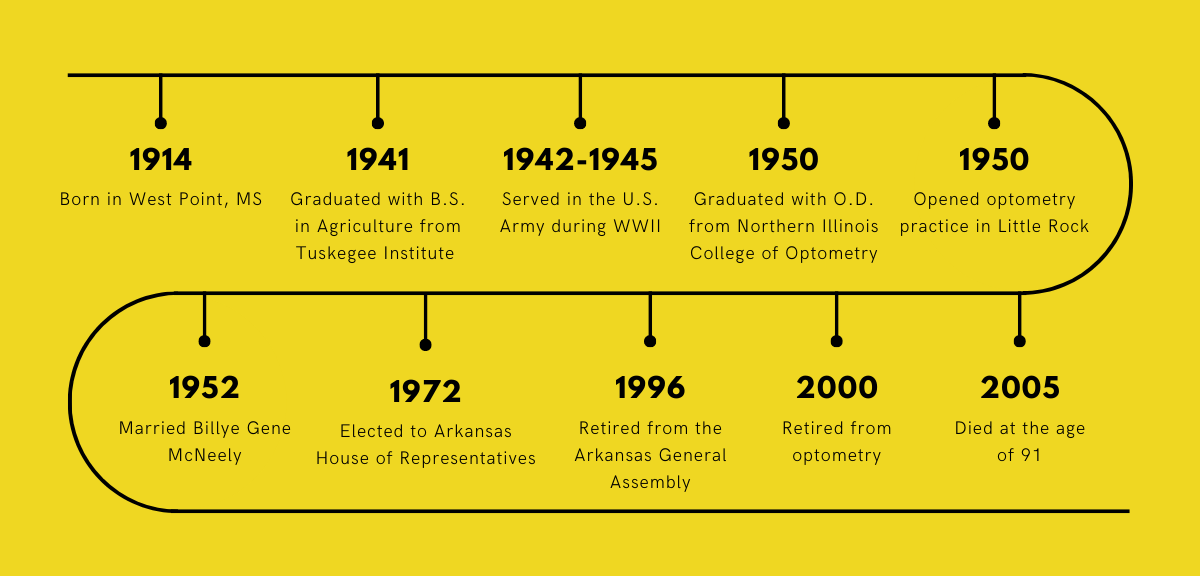
Optometry
Following his discharge, Townsend studied pre-medicine at Howard University in Washington, D.C., where a professor encouraged him to be an optometrist. As a result, he moved to Chicago and enrolled in the Northern Illinois College of Optometry in 1946. He graduated with a Doctor of Optometry degree in 1950. After passing the optometric state board examination in August, Dr. Townsend opened his optometric clinic in Little Rock, making him the first licensed Black optometrist to practice in Arkansas. His clinic was originally located in the offices of Dr. John Marshall Robinson on West 9th Street, but Dr. Townsend later moved his office to Wright Avenue in the early 1960s.
Dr. Townsend served the people of Little Rock by offering quality vision care for Black residents. His wife stated that before he opened his practice, Black patients went to offices where they had to sort through piles of glasses themselves, trying on each pair until they found one that helped them to see. At his clinic, Dr. Townsend provided individualized care to Black patients.
Civil Rights
Along with serving the people of Little Rock as an optometrist, Dr. Townsend worked with community professionals across the state to advocate for civil rights. In December 1954, he helped found and served as president for the Arkansas Council on Human Relations (ACHR). This council successfully desegregated a public high school in Hoxie and persuaded white business owners across the state to integrate quietly.
In an effort to coordinate the Black leadership response following the 1957 Central High School desegregation crisis, Dr. Townsend and three other Black medical professionals formed the Council on Community Affairs (COCA) in 1961. By developing good relations with existing civil rights groups and power bases within the Black community, COCA was able to unite and coordinate the groups’ efforts. For example, COCA negotiated with white business leaders and developed a phased desegregation plan for downtown Little Rock. In February 1963, COCA won a collective lawsuit against the city board of directors, which ordered the desegregation of all public facilities in Little Rock except for swimming pools. By the end of that year, most of the city’s public and some of its private facilities had peacefully desegregated, including the movie theaters, restaurants, parks, and the Little Rock Zoo.
In 1966 Dr. Townsend advocated for Black voting rights by serving as the chair of the Arkansas Voter Project. Backed by the Southern Regional Council’s Voter Education Project, the Arkansas Voter Project promoted voting rights activism and collected data on Black disfranchisement. For his efforts in advocating for civil rights and desegregating downtown, the UA Little Rock Anderson Institute on Race and Ethnicity honored Dr. Townsend with a marker on the Arkansas Civil Rights Heritage Trail in 2013.
During the 1960s and 1970s, Dr. Townsend expanded his participation in Arkansas politics by running for state government. He campaigned for positions on Little Rock’s city board in 1962 and 1966, but was unsuccessful. However, in 1972, Dr. Townsend was elected to the Arkansas House of Representatives, becoming one of the first Black state representatives of the twentieth century.
Because of redistricting, the name and boundaries of his district fluctuated over the course of his twelve-term tenure, but generally he represented the people of east Little Rock and southeastern Pulaski County, including Sweet Home, Woodson, Wrightsville, and College Station.
Arkansas House of Representatives
As a state representative, Dr. Townsend held many positions in the Arkansas General Assembly. He was the first Black chairman of the House Aging and Legislative Affairs Committee. He also was the vice-chairman of the House Education Committee and served on the Legislative Joint Auditing Committee. During the 1989 regular session, Dr. Townsend acted as the Speaker of the House.
Along with serving on committees, Dr. Townsend authored numerous bills to improve education, housing, employment, and healthcare for Arkansans. For example, he sponsored bills that established a free kindergarten program, provided minimum wage and benefits for non-certified school employees, eliminated the tax on prescription drugs for senior citizens, and authorized optometrists to use drugs to treat eye disease.
Dr. Townsend also used his position to continue advancing civil rights in the state. In 1985 he cosponsored Act 985, which set the date of Dr. Martin Luther King Jr. Day to the third Monday in January. In addition, he cosponsored legislation to form the Arkansas Minority Health Commission in 1991, and he coauthored the Arkansas Civil Rights Act of 1993.
Community and Family
Outside of his work as a state representative, Dr. Townsend was a family man and an active community member. He married Billye McNeely in 1952, and they had three daughters: Yolanda, Terezenha, and LaJuan.
A devout Baptist, Dr. Townsend served as a deacon and a member of the board of trustees at Mt. Zion Baptist Church, a historic church located in the urban center of Little Rock.
Additionally, he served on numerous community boards. For example, he was an executive board member of the Urban League and chairman of its Personnel Committee. He also promoted the blind community by serving on the board of Arkansas Enterprises for the Blind (now World Services for the Blind), and in 1974 he became the first Black board member of First National Bank at Little Rock.
Over his long career as a civil servant, Dr. Townsend received countless awards and honors. He earned the Jerome S. Levy Award in 1981 for outstanding leadership in the organization, development, and operation of the Central Arkansas Health Systems Agency, and he accepted the Dr. Martin Luther King, Jr. Commemorative Award in 1986. The National Conference of Christians and Jews awarded him the National Humanitarian Award in 1994.
A further indication of his impact on the community, Mayor Jim Dailey pronounced August 29, 1993, as “Dr. William H. Townsend Day” in the city of Little Rock. The proclamation described Dr. Townsend as “innovative, dedicated, and faithful, and [he] offers hope, guidance, and inspiration to people in every walk of life.”
A Lasting Legacy
After twenty-four years of service as a state representative, Dr. Townsend did not seek reelection for the 1996 term. Following the advice of his doctor, he reduced his workload and retired from politics at the age of eighty-one. He later retired from his optometry practice in 2000.
Dr. Townsend passed away at the age of ninety-one on September 15, 2005, and he was buried at Arkansas State Veterans Cemetery in North Little Rock.
In recognition of his years of optometric service, the Arkansas Optometric Association established the Dr. William H. Townsend scholarship in his memory. This scholarship annually awards $1,500 to an Arkansas optometry student attending an accredited college of optometry.
Although Dr. William H. Townsend set a number of “firsts” for Arkansas, he is remembered for more than being a civil rights trailblazer. He was a model medical professional and civil servant who dedicated his life to the people of Little Rock and Arkansas. From providing quality eye care to Black residents to advocating for civil rights through his actions and legislation, Dr. Townsend was committed to serving the entire Little Rock community.
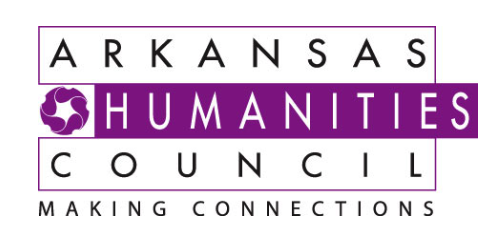
This project was funded by the Arkansas Humanities Council
Bibliography
- 1941 Tuskeana, Tuskegee University Archives, Tuskegee, AL.
- Anderson Institute on Race and Ethnicity. “Dr. William H. Townsend, Council on Community Affairs.” Arkansas Civil Rights Heritage Trail. Accessed January 28, 2022. https://arkansascivilrightsheritage.org/william-h-townsend-council-on-community-affairs/.
- Arkansas Optometric Association. “Dr. William H. Townsend Scholarship.” Scholarship brochure. Accessed January 28, 2022. http://arkansasoptometric.org/storage/app/media/_SHARED/ Townsendbrochure.pdf.
- Dr. William H. Townsend papers, UALR.MS.0294, UA Little Rock Center for Arkansas History and Culture, Little Rock, AR.
- Faulkenbury, Evan. “Mapping the Voter Education Project (VEP).” Accessed January 28, 2022. https://mappingthevep.evanfaulkenbury.com/.
- Find a Grave, “William Henry Townsend (30 Jul 1914–15 Sep 2005).” Find a Grave Memorial ID 11774133. Accessed January 28, 2022. https://www.findagrave.com/memorial/11774133/william-henry-townsend.
- Kirk, John A. “Council on Community Affairs (COCA).” Encyclopedia of Arkansas. Central
- Arkansas Library System. October 12, 2021. https://encyclopediaofarkansas.net/entries/council-on-community-affairs-7777/.
- Riffel, Brent E. “Arkansas Council on Human Relations (ACHR).” Encyclopedia of Arkansas. Central Arkansas Library System. June 15, 2020. https://encyclopediaofarkansas.net/entries/arkansas-council-on-human-relations-2959/.
About the Author:
Emily Summers is a processing archivist at the UA Little Rock Center for Arkansas History and Culture. She completed her Master of Arts degree in Public History from UA Little Rock in 2021.
Released February 2022

